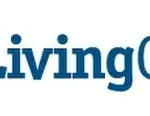
Living Goods
Expression of Interest for consultant to undertake Baseline for Project Name: USAID MSINGI IMARA PROJECT
RFA REF: 2024/01/001UMI
Project Title: USAID MSINGI IMARA PROJECT BASELINE EVALUATION
Issuance date:31.01.2024
Closing date: 12.02.2024
Project background
The Misingi Imara Project, a 3-year initiative funded by the United States Agency for International Development (USAID), is a collaborative effort led by the Kenya Medical Training College (KMTC) in partnership with Jhpiego, Living Goods, and the Ministry of Health, along with the Council of Governors. The project’s primary goal is to fortify human resources for health, quality management, and community health systems at both national and county levels, aiming to enhance equity, resource optimization, and the quality of essential health services.
Aligned with key national strategies such as the Government of Kenya’s Afya Bora Mashinani initiative, PEPFAR’s 5 by 3 strategy, COP 23 strategic direction, and the Family Health, Reproductive Maternal Neonatal Child Adolescent Health (RMNCAH) priorities, the project collaborates with the Ministry of Health to improve policy, regulatory standards, and the capacity of healthcare systems. Additionally, at the county level, it works through the Council of Governors to bolster health workforce management systems.
Utilizing innovative approaches, Misingi Imara builds on existing efforts, adapting interventions to the maturity levels of each focus county. The project emphasizes collaborative partnerships with the Government of Kenya, private sector, communities, and development partners. A key focus is measuring progress using the Human Resources for Health (HRH) maturity index and supporting the transition of 40% of PEPFAR-supported workforce by 2025.
The project’s overarching aim is to strengthen Human Resources for Health, Quality Management, and Community Health Systems through three sub-purposes:
- Strengthen Human Resources for Health management systems.
- Improve quality management systems.
- Strengthen Community Health Systems at National and County levels.
Emphasizing system thinking and a systems practice approach, the project prioritizes local capacity development, system change, and sustainable results. Specific interventions include improving HRH management systems, enhancing workplace environments, and addressing issues related to health worker productivity and retention. Quality management systems will see improvements in planning, assurance, and overall quality enhancement. Additionally, community health systems will focus on improving service quality, ensuring equitable distribution, and optimizing resources.
Geographically, the project spans ten counties: Turkana, West Pokot, Kakamega, Trans Nzoia, Nakuru, Nairobi, Kajiado, Taita Taveta, Kilifi, and Kwale. This baseline survey will play a crucial role in shaping the project’s deliverables by identifying existing gaps and providing essential insights for effective implementation.
The baseline objectives
The baseline evaluation will contribute towards:
- Establishing a baseline as points of comparison to support measurement of project impact as part of future project evaluation activities.
- Guiding realistic and feasible target setting for performance indicators where needed
- Informing the planning and implementation process including MEAL systems
- Understanding of the operational environment and existing priorities in the target counties
Qualifications of the proposed consultants
Proposed consultants should meet the following requirements at a minimum:
Qualifications Summary: The lead consultant should possess a master’s degree in epidemiology, public health, biostatistics, or a related field. Team members should have qualifications in Human Resources for Health, health systems, Primary Health Care (Community Health), data analysis, and quality improvement.
Experience:
- Minimum of 7 years in research and monitoring & evaluation, with at least 5 years of related research experience.
- Expertise in developing sampling plans and tools for various research methodologies.
- Background in the humanitarian sector, particularly in health system strengthening.
- Experience in evaluating USAID and other donor projects, including government capacity building and policy reform initiatives.
- Strong qualitative and quantitative research and analytical skills.
Other Requirements:
- Previous multicultural team experience.
- Familiarity with the region or counties of the project.
- Proficiency in English and Kiswahili.
- High level of professionalism and ability to work independently under tight deadlines.
- Strong analytical skills, the ability to synthesize findings, and timely report preparation.
- Availability for the specified period to carry out and deliver results within the assigned timeframe.
How to apply
Expression of Interest
We invite expressions of interest (EOI) from qualified consultants or firms to conduct baselines for the Msingi Imara project. Comprehensive details of the Terms of Reference and submission guidelines can be accessed through https://livinggoods.applytojob.com
Deadline: 12 Feb 2024

